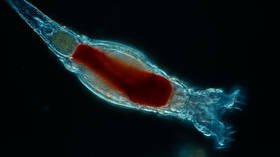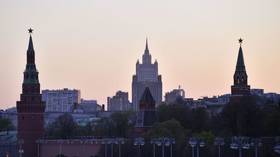Scientists in Siberia resurrect ‘new species’ of ancient asexual microscopic animals frozen in Russian river for 24,000 years

Microbiologists working at one of Moscow's top research institutes have announced they were able to revive prehistoric invertebrates, invisible to the naked eye, after two dozen millennia in hibernation in Russia's frozen north.
As part of a new paper published in the Cell scientific journal on Monday, the team reported how they were able to wake up the micro-organisms, known as rotifers, from their icy slumber. Carbon dating estimates show that the aquatic animals are around 24,000 years old.
Not only were the Russian researchers able to resurrect the rotifers, which are known for their ability to survive in extremely low temperatures, but they have even been able to show they can still reproduce asexually, without bothering to find a mate.
Also on rt.com Russia’s Far East poised to become a 21st-century Silicon Valley, region's minister predictsThe samples came from the ice-rich permafrost in the middle of the Alazeya River, which flows through the Yakutia region in Far East Siberia. Studies indicate they are unable to move through frozen soil, and were therefore trapped in the sediment thousands of years in the past.
Stas Malavin, one of the researchers behind the feat, said that “this is an animal with a nervous system and brain and everything.” He added that “we are quite confident that this is a new species for science,” while noting its similarity to likely distant relatives still alive today.
Also on rt.com Russian scientists plan to launch world’s first EDIBLE Covid-19 vaccine… and promise it will taste like fermented milky yogurtIn 2018, a team at the same institute revealed that they had been able to awaken 42,000 year old ancient nematode worms, which had been similarly hibernating in Siberia's soils. The news sparked a wave of jokes online, with users comparing it to the plot from the Jurassic Park movies, where dinosaurs were brought to life from a drop of blood in a preserved prehistoric mosquito.
A number of experts have raised concerns that global warming is causing the permafrost to thaw, bringing to the surface microbes that have laid dormant for much of human history. In 2016, an anthrax outbreak that killed 200,000 reindeer and a child was linked to melting ice, where the bacteria can lay dormant for long periods.
Like this story? Share it with a friend!















